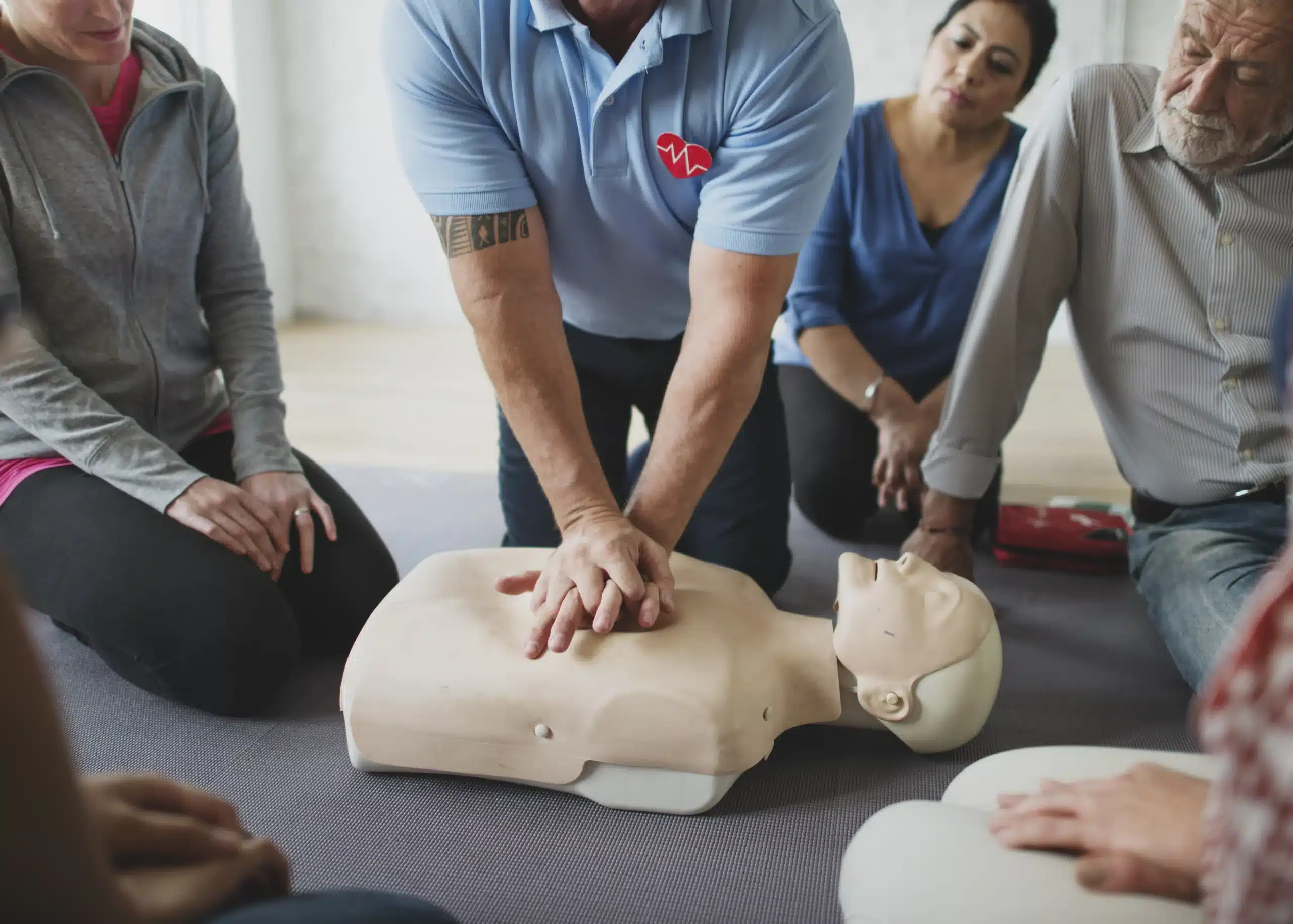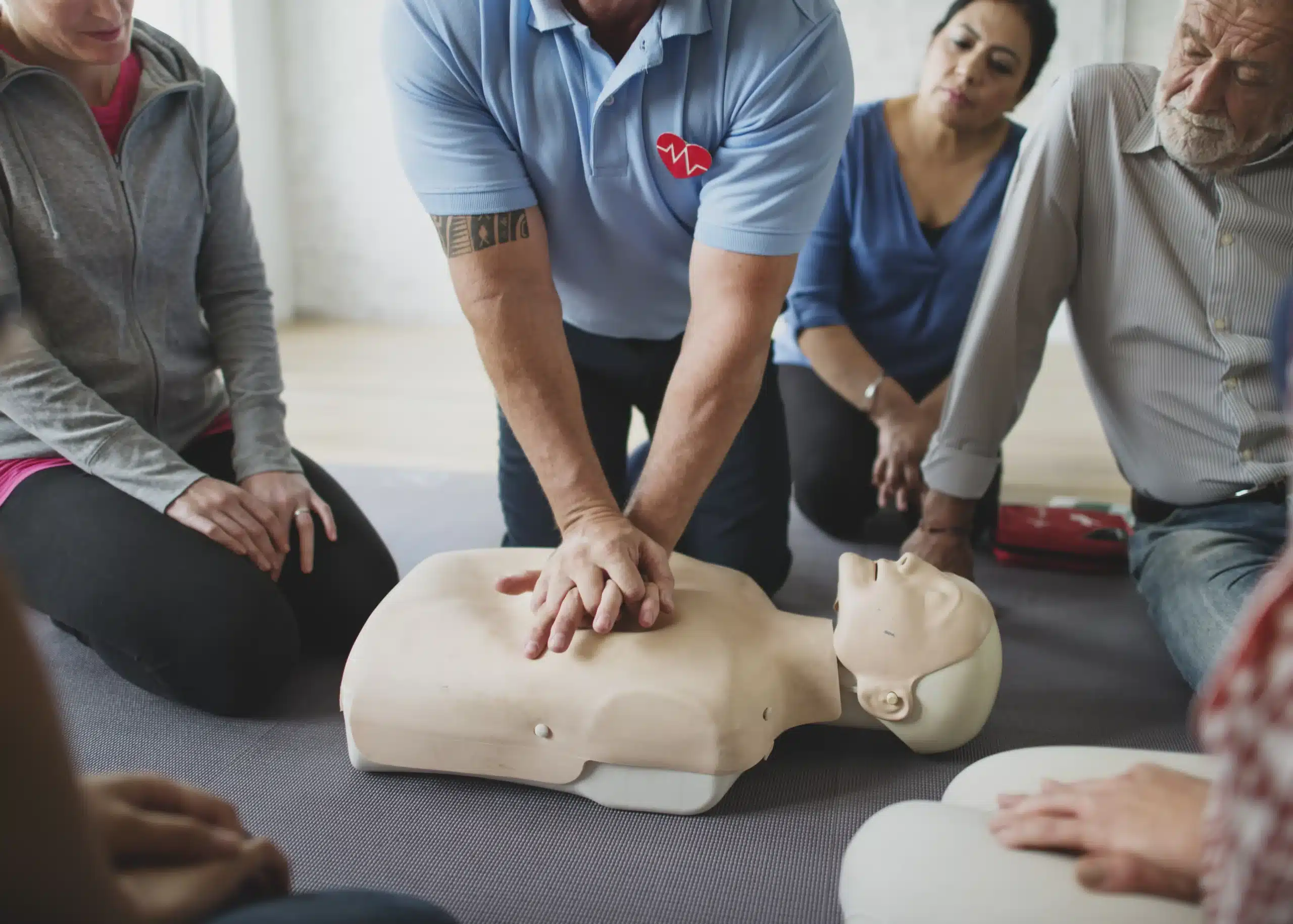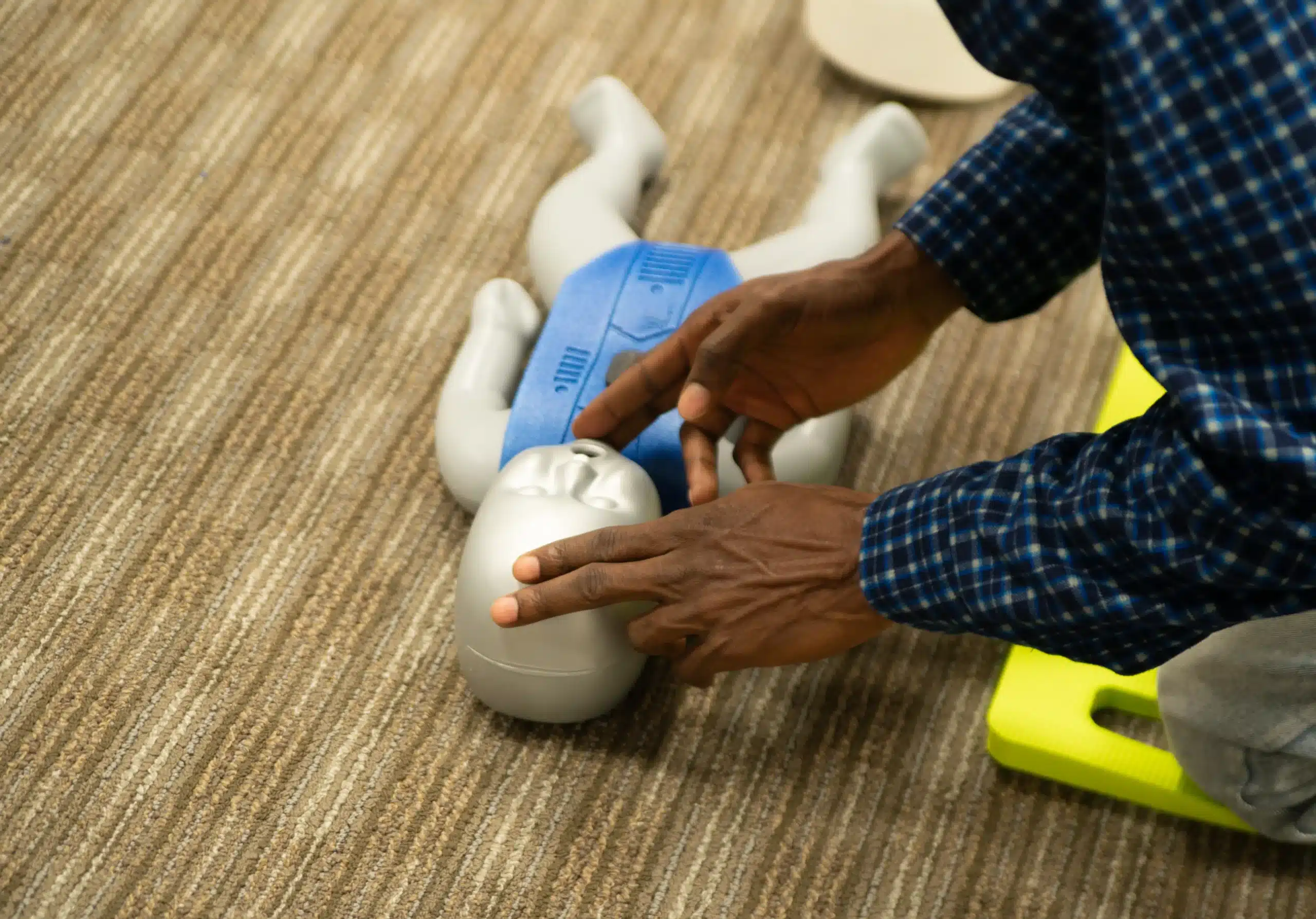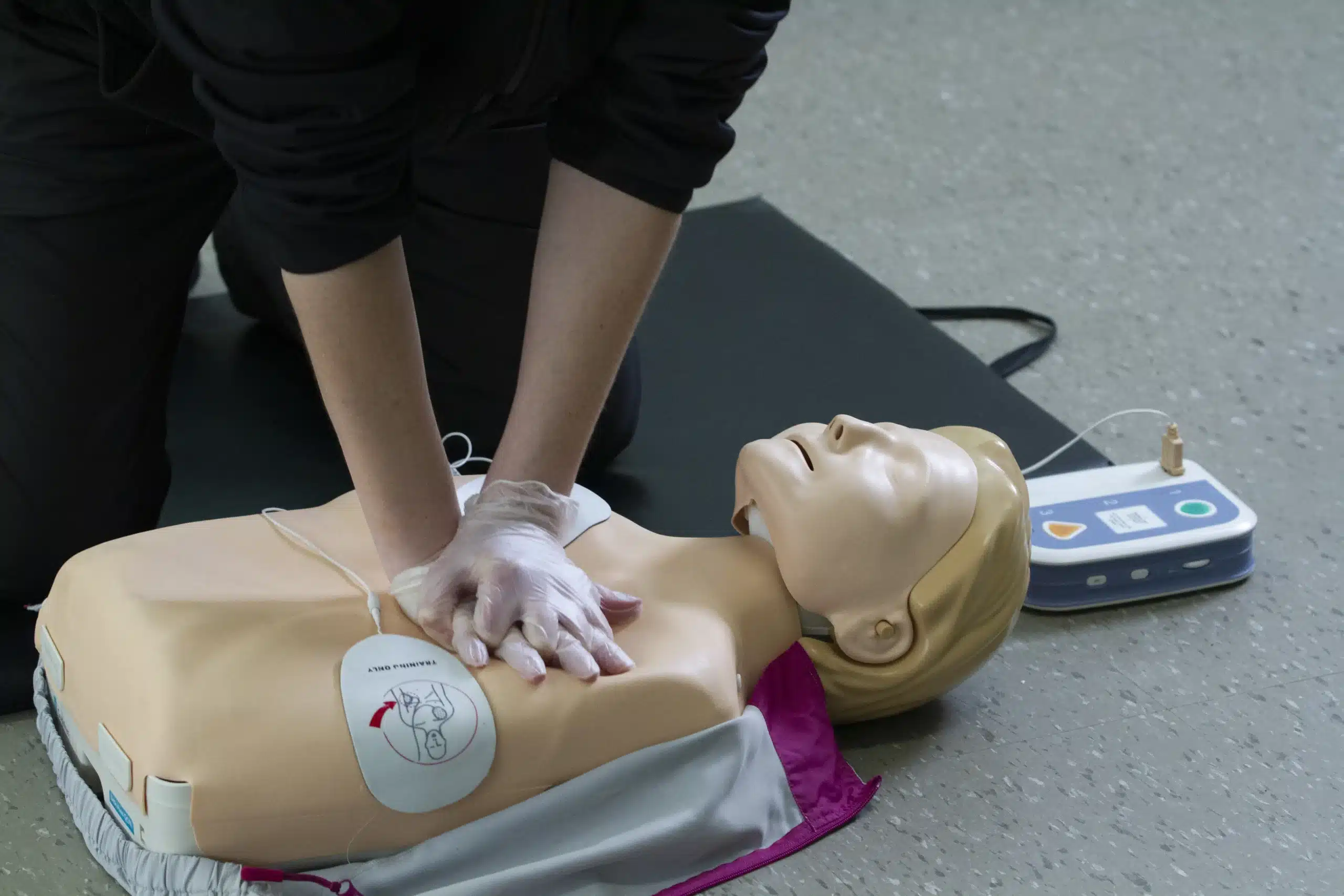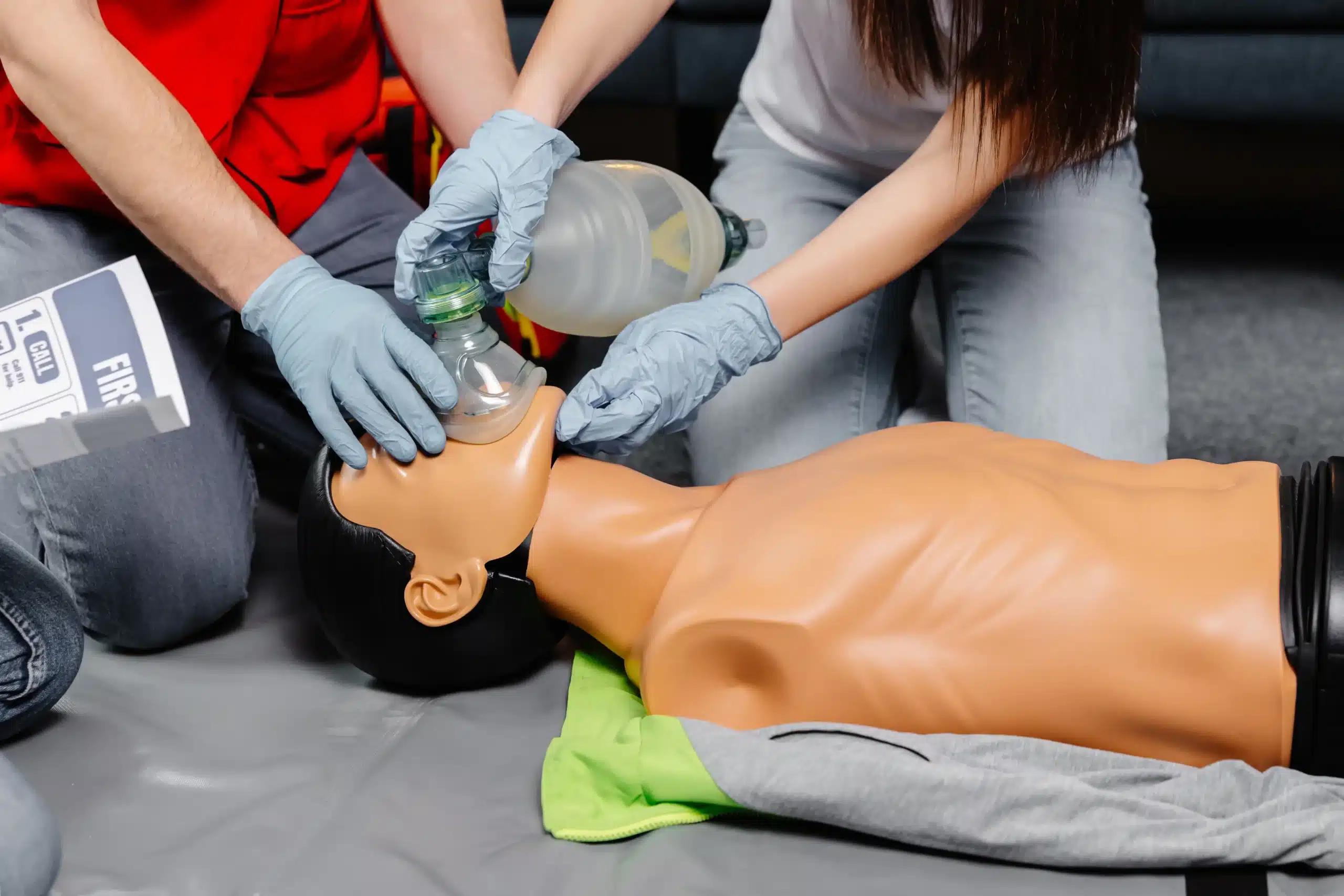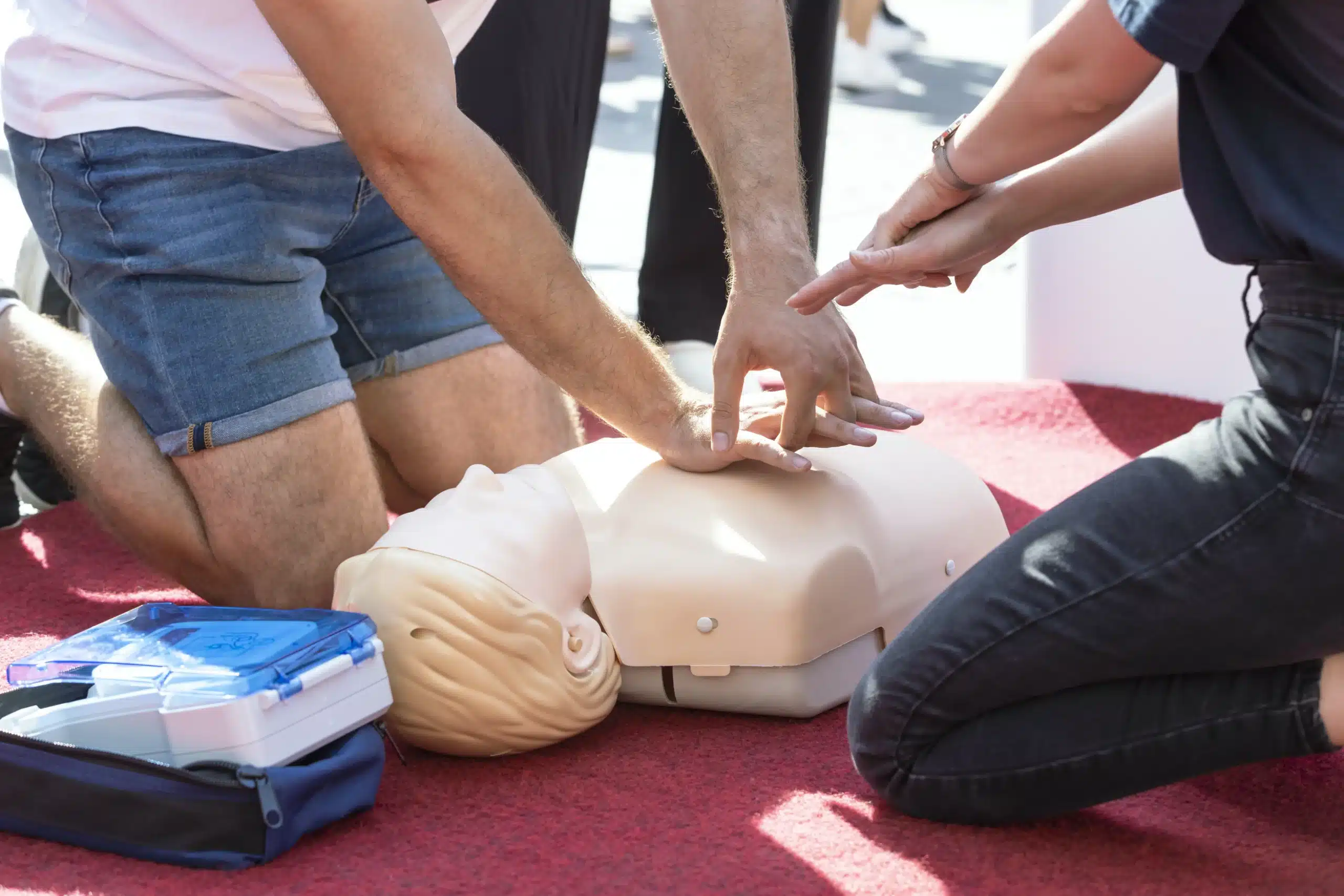Emergencies can happen anytime, anywhere. Being prepared is key, and that’s why first-aid renewal in Campbell is so important. This article serves as your complete guide to navigating the process of renewing your first-aid certification in Campbell. We’ll explore the various types of renewal courses available, including CPR/AED, basic and advanced first aid, and pediatric first aid. You’ll learn what to expect during a renewal course, how to choose a qualified provider, and the benefits of regular renewal. We’ll also discuss the importance of instructor qualifications, course costs, and different learning styles to help you find the perfect fit for your needs. Whether you’re a healthcare professional, a childcare provider, or simply someone who wants to be prepared for anything, this guide provides valuable resources and insights to empower you in emergency situations.
Key Takeaways
- Regularly renew your first-aid certification to stay prepared and confident in emergencies. Choose from various course types, including basic, advanced, and pediatric first aid, to match your specific needs and responsibilities.
- Select a reputable training provider with qualified instructors, convenient scheduling, and competitive pricing. Consider factors like course format (in-person, online, or blended) and look for group discounts or low-price guarantees.
- Maintain your skills between renewals by practicing techniques and staying informed about updated guidelines. Explore online resources, refresher courses, or consider becoming a certified instructor to deepen your knowledge and contribute to your community.
What is First-Aid Renewal?
First-aid renewal keeps your lifesaving skills sharp. It’s how you recertify your knowledge and abilities to respond confidently in emergencies. Since emergency protocols and guidelines can change, staying up-to-date is key to providing effective care. Renewal usually involves a course that reviews essential first-aid techniques, often with hands-on practice. Think of it as a refresher to make sure you’re prepared and informed. Many certification courses cover CPR and AED use and may also include specialized training like Basic First Aid or Pediatric First Aid. These certifications typically expire after two years, so regular renewal is important. For convenient local options, check with providers in Campbell offering various training programs for individuals and groups. For more information, take a look at our CPR Renewal in Campbell guide.
First-Aid Renewal Courses
It’s important to keep your first-aid skills current. Even if you’ve taken a first-aid course before, a refresher can boost your confidence and ensure you’re prepared to handle emergencies effectively. This section covers different types of first-aid renewal courses, from basic to advanced, including CPR and AED certifications. We’ll explore options for CPR/AED renewal, basic and advanced first aid, and pediatric first aid, so you can find the right fit for your needs.
Renew Your CPR and AED Certification
CPR and AED certifications often go hand-in-hand, as both skills are crucial for responding to cardiac emergencies. CPR teaches you how to perform chest compressions and rescue breaths, while AED training shows you how to use an automated external defibrillator. Look for an AHA-based CPR renewal course that includes hands-on practice with both CPR and AED equipment. A good renewal course will also cover the latest guidelines and techniques, making sure you’re up-to-date on best practices.
Renew Your Basic First Aid Certification
Basic first aid covers essential skills like treating minor cuts, burns, sprains, and other common injuries. A basic first-aid renewal course reinforces these fundamental skills, reminding you how to assess a situation, provide initial care, and decide when to seek further medical attention. You’ll review how to clean and bandage wounds, apply pressure to stop bleeding, and create a splint for a suspected sprain. This level of first-aid certification is a good option for anyone who wants to be prepared for everyday injuries.
Renew Your Advanced First Aid Certification
Advanced first aid training builds upon the basics, equipping you to handle more complex medical situations. These courses may cover topics like managing severe bleeding, allergic reactions, and fractures. You’ll learn how to use specialized equipment like tourniquets and epinephrine auto-injectors. Advanced first-aid renewal is often required for specific professions, such as wilderness guides or lifeguards, but it’s also a valuable asset for anyone who wants to be prepared for a wider range of emergencies. Check with your employer or licensing organization to see if they require advanced first-aid certification.
Renew Your Pediatric First Aid Certification
Pediatric first aid focuses on the unique needs of infants and children. Renewal courses in pediatric first aid cover age-appropriate CPR techniques, how to respond to choking incidents, and managing common childhood illnesses and injuries. You’ll learn how to recognize signs of dehydration, fever, and other common childhood ailments. This certification is especially important for parents, caregivers, teachers, and anyone who regularly interacts with children. Consider a Pediatric First Aid course to gain confidence and skills in caring for young children.
What to Expect in a Renewal Course
Renewal courses refresh your skills and knowledge, ensuring you’re prepared to handle emergencies. These courses cover essential techniques and procedures, combining classroom learning with hands-on practice.
Skills You’ll Learn
First-aid renewal courses cover essential skills, from recognizing medical emergencies to administering basic life support. You’ll learn how to respond to common injuries like cuts and burns, and how to manage serious situations like choking or cardiac arrest. CPR and first-aid certification classes equip you with the skills to recognize and respond to various medical emergencies. For healthcare providers, BLS renewal courses cover advanced techniques like using an AED and performing CPR on infants, children, and adults.
Course Length and Format
The format and length of your first-aid renewal course will vary depending on the provider and your certification. Many providers offer blended learning, combining online coursework with in-person skills testing. These courses often let you complete the online portion at your own pace. The in-person skills session typically takes a few hours and focuses on demonstrating your proficiency. Factors like course format, location, and the training provider affect the cost of BLS recertification.
Hands-on Training and Practice
The hands-on portion of your renewal course is crucial for building confidence. You’ll practice techniques on mannequins and other training equipment, receiving feedback from certified instructors. Campbell CPR classes provide hands-on instruction and instructor feedback. This practical experience helps refine your technique and provides a safe space to ask questions. BLS skills tests are for those who have completed the online portion and need a hands-on test. You’ll be assessed on performing the skills correctly and efficiently, ensuring you’re prepared for real-life emergencies.
Choosing a First-Aid Renewal Provider in Campbell
Finding the right provider for your first-aid renewal is an important decision. Here in Campbell, we’re fortunate to have several options. To help you choose, I’ve put together a quick overview of some providers in the area. I encourage you to do your own research too, but this should give you a solid starting point.
Campbell CPR Classes
Campbell CPR Classes offers a variety of American Heart Association (AHA) certified CPR renewal courses, including First Aid. They focus on providing excellent customer service and the lowest prices in Santa Clara County, backed by a Low Price Guarantee. Their training is designed to meet the needs of both individuals and organizations, and they also offer discounted group rates. For those looking for other certifications, they also offer RQI classes.
American Red Cross
The American Red Cross is a well-known provider of first-aid and CPR training. They provide comprehensive First Aid renewal courses that are structured to be engaging and informative. Check their website for class schedules and locations in Campbell.
American Heart Association
While the AHA doesn’t directly offer classes, they certify training centers that do. Locally, Safety Training Seminars offers AHA-certified First Aid courses. They focus on essential skills and knowledge that can make a difference in emergency situations. You can explore AHA-certified courses like BLS at various training centers.
Bay Area CPR
Bay Area CPR provides a range of First Aid classes, ensuring that participants receive up-to-date training that meets current standards and practices. They offer various levels of certification, so you can find the right course to fit your needs. You can find more information on their website.
Safety Training Seminars
Safety Training Seminars specializes in CPR and First Aid training, offering courses recognized across healthcare and emergency response fields. They are an established provider in the Campbell area. Contact them directly for their course catalog and schedule. For more information on CPR and First Aid classes in Campbell, you can visit Campbell CPR Classes’ CPR Renewal in Campbell guide.
Adams Safety Training
Adams Safety Training offers Pediatric CPR and First Aid training. They focus on the specific needs of infants and children, making them an excellent choice for parents, nannies, and childcare providers. Check out their website for more details.
Compare Course Costs
Shopping around for the best price on your first-aid renewal makes sense. Understanding how pricing works can help you find the most cost-effective option.
Factors Affecting Price
Several factors influence the cost of first-aid and CPR renewal courses. The course format plays a big role. Online courses are often more budget-friendly than in-person classes. Your location matters too, as prices can differ between cities and training centers, even for the same course. Finally, the training provider itself sets its own pricing, so comparing options is always worthwhile. For more information on BLS recertification costs and factors, take a look at this guide.
Group Discounts and Deals
If you’re renewing with a group, like coworkers or a community organization, look for group discounts. Many providers, including Safety Training Seminars, offer reduced rates for group bookings. This can be a practical way to save money while learning together. You can also explore group discounts specifically offered by Campbell CPR Classes.
Low Price Guarantees
Some training centers offer a low price guarantee. Campbell CPR Classes, for example, has the lowest prices in Santa Clara County, backed by their Low Price Guarantee. This assures you of the best possible deal. If you find a lower advertised price for a comparable course, they’ll match it. Be sure to ask about any guarantees when comparing providers.
Instructor Qualifications
Knowing your instructor’s qualifications is key to a good learning experience. It ensures you’re receiving accurate information and effective training. Here’s what to look for in a qualified first-aid instructor:
Instructor Requirements
First-aid instructors undergo rigorous training to earn their certifications. They must complete an instructor development course, which typically includes online and in-person components. These courses cover adult, child, and infant CPR, AED use, and first-aid techniques. Instructors also learn how to create a positive learning environment and adapt their teaching to different learning styles. After completing the course, instructors often need to affiliate with a recognized training provider and agree to their teaching and certification standards.
Trainer Experience
Beyond basic certification, look for instructors with real-world experience. Experienced instructors can offer practical insights and answer your questions based on their own encounters. They can also share valuable tips they’ve learned over time. Many training organizations, like the National Safety Council, highlight the importance of passion and a desire to educate when selecting instructors. Some organizations, such as HSI, even have unique instructor programs that focus on developing highly skilled trainers. A good instructor will not only teach you the necessary skills but also inspire confidence in your ability to use them effectively. Look for programs that emphasize performance-based training, which focuses on practical application and real-world scenarios. This approach ensures you’re not just memorizing steps but truly understanding how to respond in an emergency.
Get Certified
Getting recertified in first aid is straightforward. Here’s how it works, from signing up for a class to receiving your updated certification card.
Steps to Certification
Campbell CPR Classes offers a variety of AHA-based courses, including BLS, ACLS, PALS, and First Aid. We also offer specialized training like EMSA Child Care Health & Safety and RQI. First, choose the right course for your needs. Consider your profession and required certification level. Then, register online or give us a call. We offer flexible scheduling to accommodate busy lives. After you complete your course, including written and skills tests, you’ll receive your certification card.
Expiration and Renewal
First aid certifications, like CPR certifications, typically expire every two years. Renew your certification before it lapses to maintain your qualifications and comply with workplace requirements. Several factors influence BLS recertification costs, including course format (online or in-person), location, and the training provider. Check our Low Price Guarantee for the best value. We also offer group discounts for businesses and organizations.
Same-Day Certification
At Campbell CPR Classes, we know getting certified quickly matters. We offer same-day certification—you receive your card the same day you complete your skills test. This allows you to update your credentials efficiently and return to work without delay. Contact us with any questions or to schedule a class.
Choose Your Learning Style
Deciding on the right learning environment is key for successful first-aid renewal. Think about your learning preferences, schedule, and access to technology to determine the best fit.
In-Person Training
In-person training offers hands-on experience and direct interaction with a certified instructor. This format allows for immediate feedback, which can be crucial for mastering techniques like CPR. Campbell CPR Classes offers a range of AHA-based courses, including CPR, First Aid, and BLS, ensuring comprehensive in-person training tailored to your needs. The opportunity to practice skills in a real-world setting and ask questions in real-time makes in-person learning a popular choice. It’s also a great way to connect with other professionals.
Online and Blended Learning
Online and blended learning options provide flexibility for busy schedules or limited access to physical classes. The American Heart Association offers online courses that allow you to learn at your own pace, often incorporating videos, interactive exercises, and online assessments. Blended learning combines online modules with in-person skills sessions, offering a balance of independent study and hands-on practice. This approach can be particularly effective for those who prefer a more self-directed experience supplemented with practical application. Some community colleges also offer certification and recertification courses.
Online vs. In-Person
The best choice between online and in-person training depends on your individual learning style and circumstances. While online CPR and first-aid certification can be legitimate if obtained through a reputable organization like the AHA, in-person training offers the distinct advantage of direct interaction and real-time feedback. Consider whether you thrive in a structured classroom environment or prefer the flexibility of online learning. If you learn best by doing and value immediate feedback, in-person training might be a better fit. If you need more flexibility and prefer self-paced learning, an online or blended approach could be more suitable. Think about what works best for you and choose the format that will set you up for success.
Prepare for Your Course
Getting ready for your first-aid renewal doesn’t have to be stressful. A little preparation goes a long way! Here’s what you need to know:
What to Bring
Keep it simple. Bring a photo ID, your current certification card (if you have it), and a water bottle to stay hydrated. Comfortable clothing is also a must since you’ll be practicing hands-on skills. A notebook and pen can be helpful for jotting down notes, but many courses provide materials. Check with your chosen provider, like Campbell CPR Classes, to see if they have any specific requirements.
Study Tips
Even for a renewal course, brushing up on the basics can boost your confidence. Review any materials from your previous course, or check out resources like the American Heart Association website for refreshers on CPR techniques and first-aid procedures. Watching videos and practicing proper techniques can significantly improve your chances of passing the skills test. You can find more helpful tips on our blog.
Address Common Concerns
It’s normal to have questions before your course. If you have any physical limitations, it’s wise to discuss them with your training provider beforehand. They can offer modifications or suggestions to ensure your comfort and successful participation. Also, double-check your workplace’s specific requirements for CPR and first-aid training. Some employers may have specific certifications they prefer, so confirming this ahead of time will prevent any surprises. You can explore resources like CPR For Employment to learn more about certification validity.
Keep Your Skills Sharp
It’s simple: regularly renewing your first-aid certification keeps your skills fresh. CPR and first-aid training offer invaluable skills that can make a real difference in an emergency. But like anything else, these skills can fade if you don’t use them regularly. Renewing your certification ensures you’re always ready to help when needed.
Benefits of Regular Renewal
Think of renewing your certification like a tune-up. It reinforces your core skills and introduces you to any updated guidelines. Plus, knowing you’re up-to-date on your training gives you the confidence to act quickly and effectively in a stressful situation. The peace of mind that comes with being prepared is invaluable. In an emergency, every second counts. Your swift action, backed by current knowledge, can significantly impact the outcome. Regularly refreshing your skills could save a life.
Resources for Continuous Learning
Staying current on your first-aid training is easier than you think. Campbell CPR Classes offers a variety of AHA-based CPR renewal courses, including BLS, ACLS, PALS, and First Aid. You can also find renewal courses through the American Red Cross. For budget-friendly options, community colleges frequently offer certification and recertification courses. If you’re passionate about first aid and want to share your knowledge, consider becoming a certified instructor through a program like the HSI Instructor Development Course. With so many resources available, maintaining your first-aid skills is more convenient than ever.
Related Articles
- ACLS Renewal Campbell: Your Complete Guide – Campbell CPR Classes
- BLS Renewal Near Me: Find the Right Course – Campbell CPR Classes
- CPR Renewal in San Jose: Your Complete Guide – Campbell CPR Classes
- Pediatric CPR & First Aid Classes in San Jose – Campbell CPR Classes
- Find First-Aid Classes Near Me: A Practical Guide – Campbell CPR Classes
Frequently Asked Questions
How often do I need to renew my first-aid certification? First-aid certifications, like CPR certifications, are typically valid for two years. It’s important to renew before it expires to maintain your qualifications and stay up-to-date on the latest guidelines.
What’s the difference between basic and advanced first aid? Basic first aid covers common injuries like cuts, burns, and sprains. Advanced first aid goes further, equipping you to handle more complex situations like severe bleeding or allergic reactions. The level you need depends on your personal or professional requirements.
Are online first-aid renewal courses accepted? Yes, many reputable organizations, including the American Heart Association, offer online or blended learning options. These can be a great choice for busy schedules, but often require an in-person skills test component. Make sure the course you choose meets any requirements set by your employer or licensing organization.
What should I look for in a first-aid training provider? Look for providers offering certification from recognized organizations like the American Heart Association or the American Red Cross. Consider factors like instructor qualifications, course format (online, in-person, or blended), cost, and location convenience. Reading reviews and comparing options can help you find the best fit.
How can I stay up-to-date on first-aid practices between renewals? Resources like the American Heart Association and Red Cross websites offer valuable information and refreshers. You can also subscribe to newsletters, follow relevant blogs, or consider joining professional organizations related to first aid or healthcare to stay informed about updates and best practices.



